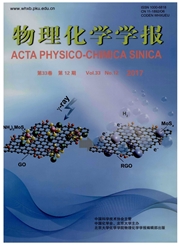

 中文摘要:
中文摘要:
微孔-微孔复合分子筛是指两种(或多种)微孔分子筛的复合晶体,不仅具备单一分子筛的特性,而且由于复合过程中产生的结构畸变使其具有独特的孔道结构和酸性质,进而体现出优异的催化反应特性,成为当今分子筛领域的研究热点。微孔-微孔复合分子筛可分为共晶分子筛和共生分子筛两种,前者通过两种分子筛晶体的无限成分单元重排,有利于构成新的完整的晶体结构,后者则是两种分子筛共生长过程中得到的两相交错生长的复合体,产生微结构畸变和界面效应。本文对微孔-微孔复合分子筛进行归纳和分类,并系统介绍了微孔-微孔复合分子筛的研究进展,着重阐述了共晶分子筛和共生分子筛的合成与微结构特点以及在催化反应领域中的应用。
 英文摘要:
英文摘要:
Micro- microporous composite zeolites with binary(or more) structures not only possess the advantages of the two kinds of molecular sieves, but also tailor the pore structure and acid property of the composite samples. These changes induce the formation of special properties of the composites and further present special catalytic performance, which drives many research studies. Based on synthetic methods and micro-structural features, micro-microporous composites can mainly be divided into two types: intergrowth or co-existence composite zeolites. The former has a structural rearrangement that is produced by the stacking of distinct layers and leads to the generation of a new crystal structure. The latter is formed by staggered growth and has a compound interface when two or more zeolites appeared in the same gel system. Compared with the intergrowth zeolites, the co-existence zeolites do not possess the new and perfect crystal structure. This review summarizes the development of micro-microporous composites, focusing on their synthesis and structural characteristics as well as the application of intergrowth and co-existence composite zeolites in the field of catalytic reactions.
 同期刊论文项目
同期刊论文项目
 同项目期刊论文
同项目期刊论文
 期刊信息
期刊信息
